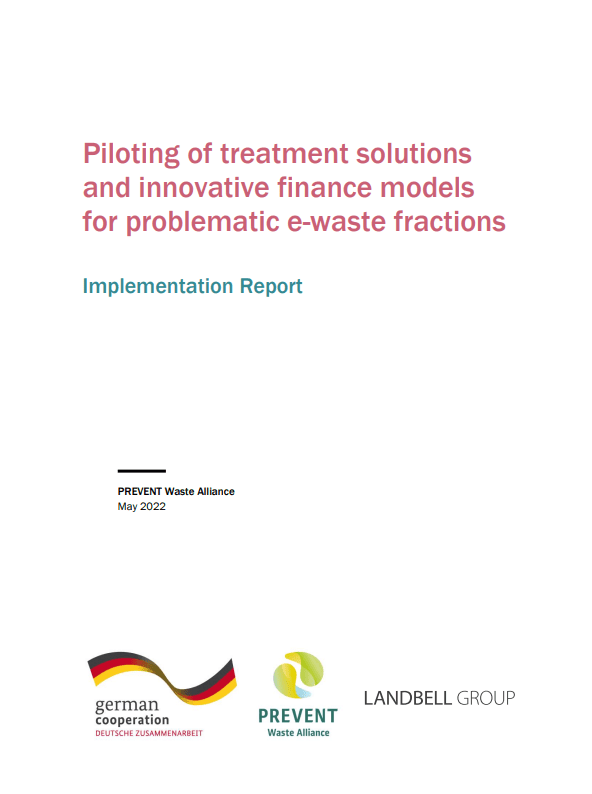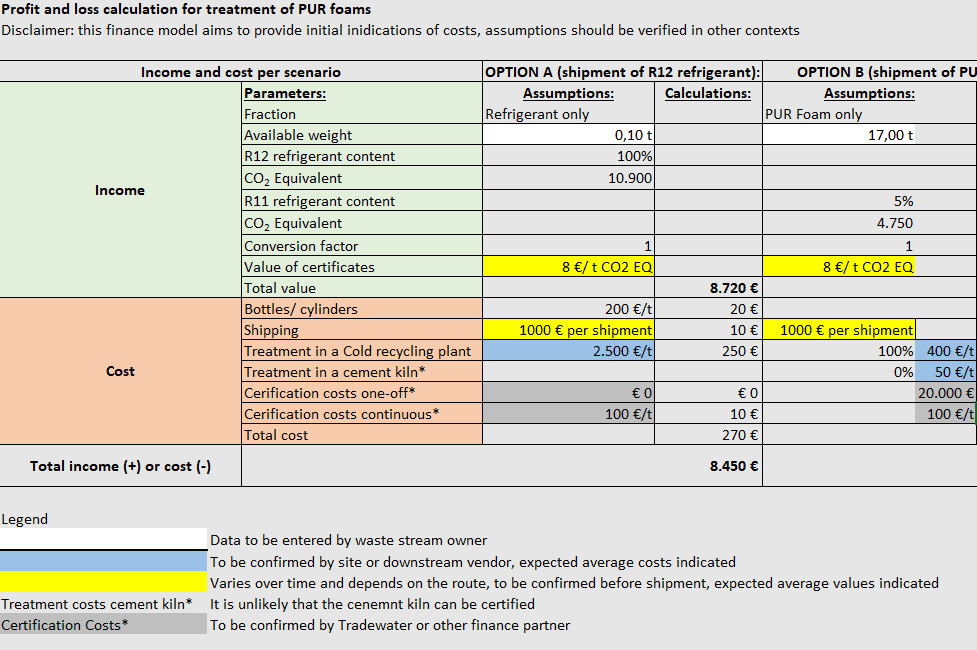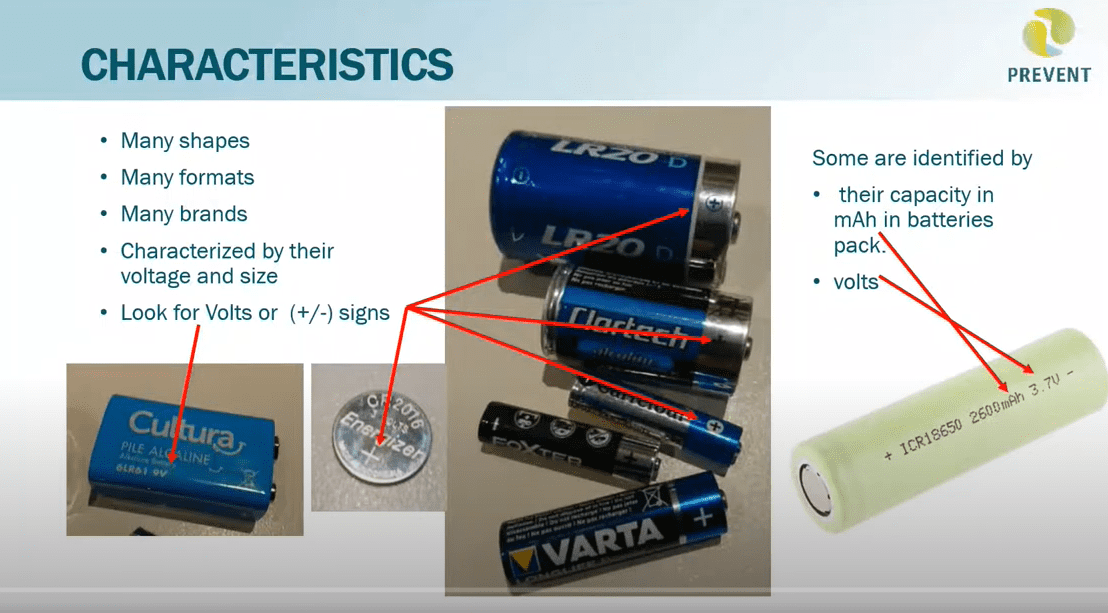Challenges
- Recyclers in low- and middle income countries have no local solutions for e-waste fractions such as PUR Foams, lithium-ion batteries, e-waste plastics and mixed waste shipments
- Adequate treatment and financing models need to be developed
Our Solution
From 2020 to 2021, this PREVENT project developed innovative financing mechanisms and treatment solutions for PUR Foams, lithium-ion batteries, e-waste plastics and mixed waste shipments together with recyclers. Different finance models were tested in four pilot projects in the Balkans, Latin America, as well as East and West Africa. Throughout the project, recyclers received support in the form of technical advice as well as matchmaking with state-of-art recyclers operating in industrialised countries.
Download Project FactsheetResources

Implementation Report: Piloting of treatment solutions and innovative finance models for problematic e-waste fractions
The project developed finance and treatment solutions for PUR Foams, lithium ion batteries, e-waste plastics and mixed waste shipments with recyclers. The implementation report describes the project approach and developed solutions in detail.
Download
Finance models for problematic e-waste fractions
Overview of finance models (Excel file) for PUR Foams, lithium ion batteries, e-waste plastics and mixed waste shipments.
Download Excel File
Training on E-Waste / WEEE Management
The PREVENT Waste alliance has hosted online trainings on e-waste plastics and battery recycling. The trainings focus on identification, sorting and end-of-life management. The training on battery recycling is also available in French.
Watch on YouTube